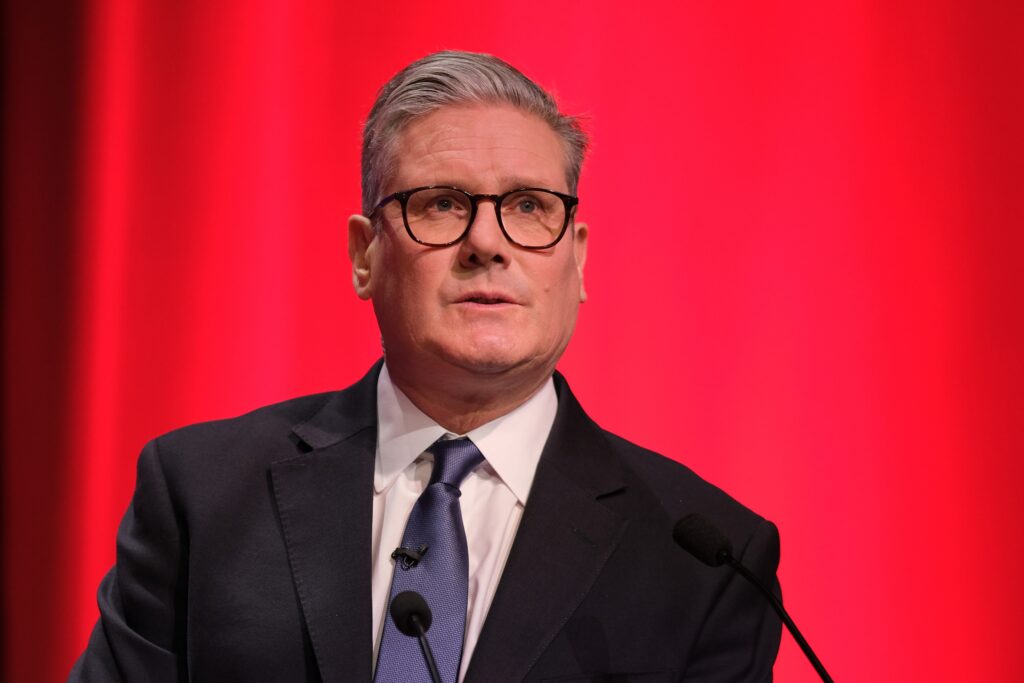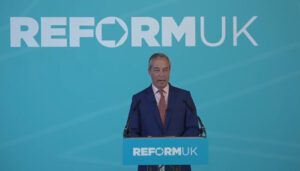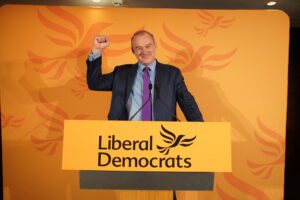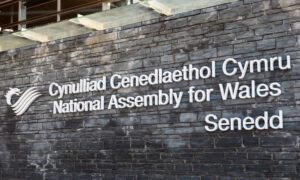The Prime Minister arrived in Liverpool facing pressure to define his premiership. Labour may be in government, but a clear sense of what drives this Prime Minister – beyond competence and stability – has often eluded supporters and critics alike. His conference speech was therefore a test of clarity and conviction, and by most accounts it was one he passed with skill.
The delivery was measured but also punchier than his earlier set pieces. There were moments of genuine passion when he spoke about unity, fairness and the importance of growth that reaches all communities. He framed the choice facing the country in stark terms:
“Britain stands at a fork in the road. We can choose decency. Or we can choose division. Renewal or decline.”
This was not just a rhetoric, it was the moral heart of the speech. An attempt to define his government in contrast to populism and pessimism.
Growth as renewal
The centrepiece of Starmer’s address was economic renewal. He made the case that growth is not an abstract statistic but something that touches the daily lives of citizens – whether a secure payslip, the ability to buy small comforts, or the reassurance that bills can be paid.
“Growth is the pound in your pocket…the peace of mind that comes from economic security.”
The argument was simple but significant. The Labour Party is positioning itself not as a movement promising radical redistribution, but as a government that will create the conditions for steady prosperity across the country. Starmer rejected the idea that growth can only come from the financial sector or London, speaking instead of growth “from the grassroots.” This reflects a shift away from Labour’s past reliance on fiscal transfers, and towards a belief in spreading opportunity through regional development, skills, and investment.
It was also a coded reminder that there will be no unfunded giveaways. The emphasis on fiscal discipline was deliberate: tough decisions are coming, and Starmer wanted members to hear this from him directly.
Hard choices ahead
One of the most notable aspects of the speech was his candour about the pain of governing. Starmer admitted that the road to renewal will involve unpopular and sometimes uncomfortable decisions. This was a subtle warning to those in the party who might push for expansive spending commitments or sweeping reforms without clear funding.
He cast himself as a leader prepared to make choices “firm and fair,” insisting that governing is not about easy promises but about responsibility.
“The most important aspect of national renewal is how you grow an economy, not just how much, but who and where benefits.”
It was a carefully pitched message: realistic enough to prepare the party for constraint, yet optimistic enough to offer the promise of long-term progress.
Borders and sovereignty
The most surprising section came on immigration and sovereignty. Starmer acknowledged that the system requires reform and that Britain may need to question some of the assumptions and legal constraints of past decades. For many in the hall this was uncomfortable territory, yet it demonstrated his determination not to cede the issue to Reform UK or the Conservatives.
It was also a political calculation. With Reform UK polling stubbornly high, Starmer clearly wanted to blunt their appeal by showing Labour as pragmatic and tough on border control, while still upholding fairness and respect for those who contribute to the country.
A moral framing
What lifted the speech beyond policy detail was its moral framing. Starmer returned repeatedly to the idea that politics is about values: decency, fairness, and the belief that the country can come together. This was his answer to cynicism about whether Labour has a story to tell.
“No matter how many people tell me it cannot be done, I believe Britain can come together.”
This line resonated with delegates because it captured the ambition of government not just to manage decline but to renew national life. The invocation of the post-war Labour government was deliberate, positioning today’s challenges in the context of historic responsibility.
Did it answer the question?
For those in the hall, the speech largely succeeded. Delegates responded warmly, members heard more detail than in previous addresses, and the Prime Minister’s values came through more clearly. Yet there remains a lingering question. Are we truly more aware of what this Prime Minister stands for than we were at the start of the conference?
The speech positioned himself as the champion of decency versus division, renewal versus decline. It offered important markers on growth, fiscal discipline, and immigration. But it left some ambiguity about the deeper vision of Labour in power. Is this a government of cautious stability, or of transformative ambition?
Final thought: a strong step, but unfinished business
Sir Keir Starmer delivered a strong and well-judged conference speech. It reassured his party, provided voters with a sense of direction, and positioned Labour against the divisive politics of Reform UK. It showed him as a leader with values rooted in decency and fairness, and a pragmatist prepared to take tough decisions.
Yet it also highlighted the challenge that will continue to confront him. Values alone will not carry a government. Policy choices, delivery on the ground and a clear vision of the future will determine whether Labour’s promise of renewal can be sustained.
This speech was a significant step forward, but the task of defining Starmer’s premiership is far from complete.




